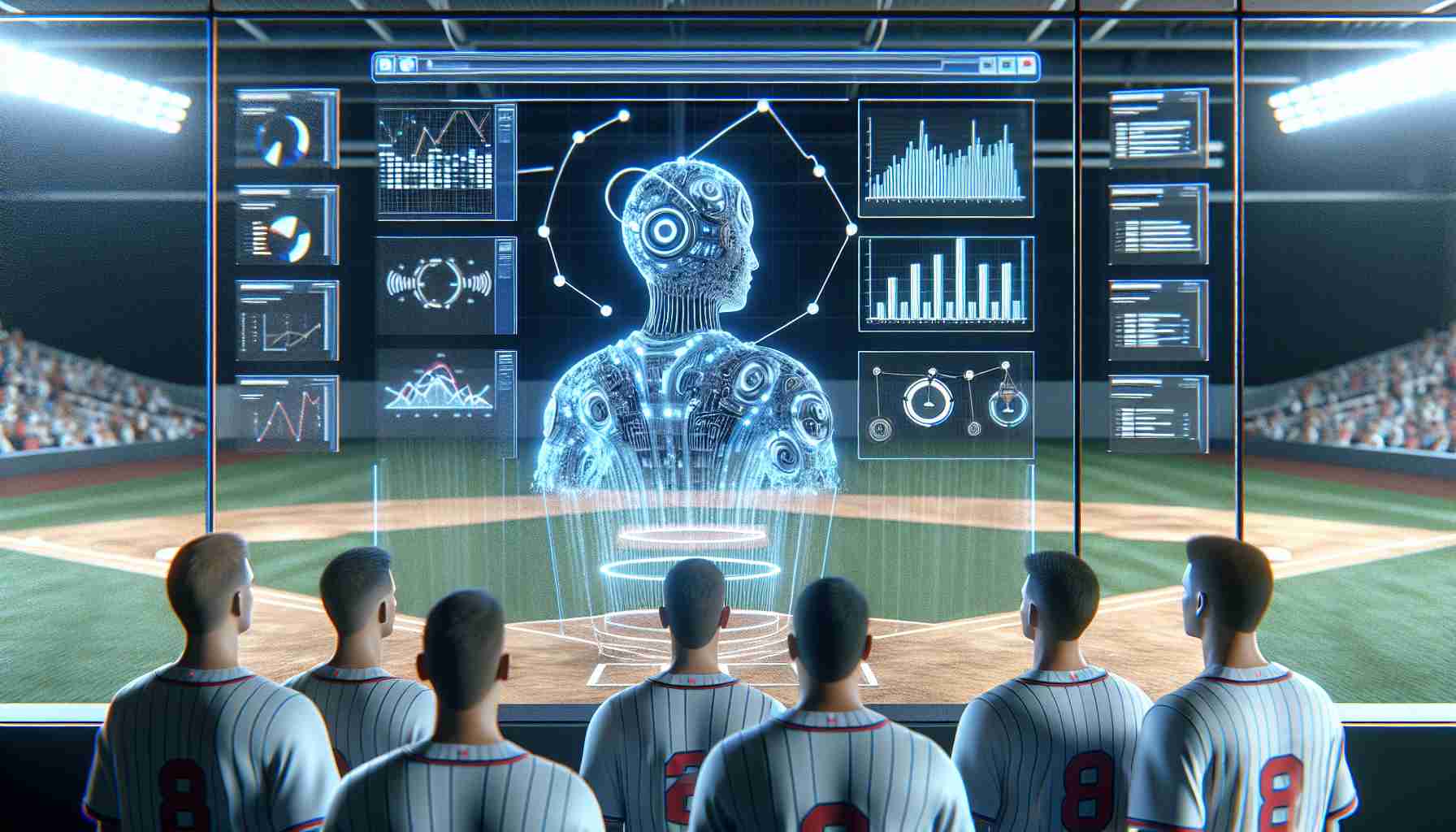Revolutionizing Trade Strategies with AI
The New York Mets are stepping into the future of baseball by harnessing the power of Artificial Intelligence (AI) to refine their trade strategies. As the competition heats up among Major League Baseball teams, the Mets are at the forefront, utilizing advanced technology that outstrips traditional player assessments.
In stark contrast to the old-school methods rooted in scouting and historical analysis, the Mets’ approach incorporates an extensive array of data. This encompasses everything from real-time game statistics to detailed biomechanical evaluations, offering a deep dive into player performance, injury risks, and overall contribution potential.
Paul Chatfield, the Mets’ Director of Data Analytics, has shared insights regarding this innovation. The integration of AI enables the team to craft trade strategies that are finely attuned to long-term goals, leading to a marked improvement in competitive stature. Moreover, AI doesn’t merely assess players’ physical attributes; it also examines personal traits and team chemistry, ensuring that new recruits align with the club’s culture.
As the Mets embrace this cutting-edge framework, the baseball world eagerly anticipates the impact on their performance. Will this technological leap inspire other teams to revolutionize their own operations? The answer may influence not just the future of the Mets, but the fabric of baseball itself, heralding a new era of strategic precision and team dynamics.
Transforming Major League Baseball: The Mets’ AI-Driven Trade Revolution
Revolutionizing Trade Strategies with AI
The New York Mets are leading a paradigm shift in Major League Baseball (MLB) by leveraging Artificial Intelligence (AI) to enhance their trading strategies. This pioneering approach represents a significant departure from conventional methods that have long dominated the game.
How AI is Shaping Trade Decisions
The Mets are utilizing AI to analyze a vast spectrum of data points far beyond traditional scouting reports. This includes:
– Real-time Game Statistics: Algorithms process game data instantly, providing insights on player performance during matches.
– Biomechanical Analysis: AI tools evaluate players’ physical movements to identify strengths and vulnerabilities, predicting future performance and injury risks.
– Psychometric Assessments: Beyond technical skills, AI evaluates players’ personalities and compatibility with existing team dynamics, ensuring smoother integration into the clubhouse.
This multifaceted approach assists the Mets in crafting strategic trade decisions aligned with their long-term vision.
Pros and Cons of AI in Baseball Trading
Pros:
– Enhanced Decision-Making: AI provides advanced analytics that enhance the ability to predict future player performance and injury likelihood.
– Team Chemistry Insights: By assessing interpersonal dynamics, teams can improve cohesion, potentially leading to better on-field performance.
– Competitive Edge: Early adoption of these technologies may position the Mets ahead of rivals who have yet to integrate AI into their operations.
Cons:
– Over-Reliance on Data: There is a risk that teams may overlook intangible factors that cannot be measured by algorithms.
– Potential for Misinterpretation: Analysts must be proficient in understanding AI-generated data to avoid misleading conclusions.
Features of the Mets’ AI Strategy
Paul Chatfield, the Mets’ Director of Data Analytics, highlights key features of this new strategy:
– Comprehensive Data Integration: The utilization of diverse data sources creates a more holistic view of player potential.
– Long-Term Forecasting: AI tools not only evaluate current performance but also project future contributions, aiding in long-term roster planning.
– Cultural Fit Assessments: AI analytics incorporate personal traits to assess how well a player will fit into the team’s existing culture.
Use Cases and Market Insights
The implications of AI in trade strategies extend beyond the Mets. As AI technology continues to develop, other teams are likely to follow suit, potentially creating a more data-driven competitive landscape across MLB. The ripple effect may lead to increased investments in data analytics departments throughout the league.
Limitations of AI in Sports
While the potential of AI is vast, teams must also recognize its limitations. AI cannot replace the nuances of human judgment, experience, or intuition that scouts and managers provide. Additionally, the reliance on data may inadvertently create biases if the datasets used are not representative of the entire player pool.
Future Predictions
As the MLB evolves, we may see a trend where teams increasingly prioritize technological innovations, including AI analytics. This could lead to a future where data literacy becomes a cornerstone of scouting and team management, influencing not only player acquisitions but also coaching strategies.
Conclusion
The New York Mets are setting a precedent in utilizing AI to redefine trade strategies in baseball. This technological evolution holds promises of enhanced performance, a more robust understanding of player dynamics, and potentially a transformed landscape for MLB operations. As more teams explore similar innovations, the future of baseball could be shaped significantly by data-driven methodologies.
For further insights on the intersection of technology and sports, visit MLB.com.
